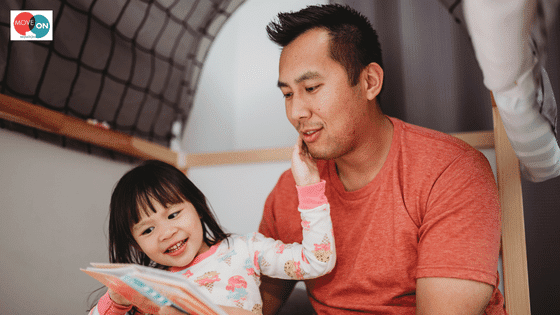The benefits of family mediation are many – from saving time, money and considerable stress, to having a more amicable relationship with your ex after you separate.
But there are plenty more as well – here are 11 of the most important benefits of family mediation.
1. Save Money
Compared to going through the Family Courts, family mediation is by far the least costly way of divorcing. When litigating (arguing through the Court system), each party appoints their own lawyers, who probably charge by the hour – in 6 minute blocks. This will include receiving, sending and reading letters and documents, correspondence between parties, preparing forms and Court documents and appearances in Court or attending meetings. While the case remains ongoing, costs continue to stack up.
In family mediation, usually both parties share the cost of one mediator, making the entire process less complicated and less costly. Most family mediators charge a flat fee or an hourly rate. With a fixed fee both parties know exactly what they’re in for financially from the very start.
2. Save Time
Unlike litigation, where cases can drag on for months and not uncommonly for years, in family mediation the entire process may take a few weeks to be resolved. There is no hard and fast rule as to exactly how long each case may take, as much depends on the complexity and nature of the disputes, but it will be very much quicker than in the Family Court.
If both parties have a genuine desire to resolve their differences, disclose all information accurately and truthfully and are prepared to negotiate in a reasonable manner, it can pave the way for a speedy settlement.
3. Confidentiality
Family mediators are bound by strict confidentiality laws and everything said during mediation remains confidential and cannot be used as evidence in a Court, should it end up there. This is totally contrary to litigation, where all information divulged is open.
Only in rare cases, where there’s a risk of violence, particularly to a child, are mediators legally bound to report the matter and such information may then be used as evidence.
4. Flexibility
Another key benefit of family mediation is that, unlike a Court procedure where dates are set and you are bound by strict rules and etiquette, mediation offers an informal environment where you get to choose the venue, dates and times to suit you.
Where in a Court you may have to be cross questioned by your spouse’s lawyer, family mediation can be held by phone or video conference, or you can choose to have a relative, friend or your own lawyer present, or even be in separate rooms. Overall, it is far less intimidating for all parties.
5. Less Stressful
Mediators are not interested on finding blame or taking sides, thus emotions are minimised so the parties can concentrate on solutions and getting to an amicable settlement both parties can live with. By remaining neutral and keeping both parties in check, while informing them of the legal rights and obligations, mediators can control either party from making unreasonable demands, making the process less stressful.
Because the process is much speedier than litigation, everyone spends less time living with hostility and uncertainty.
6. Be Heard
Unlike in the Family Court, where a lawyer argues on your behalf, in family mediation you get to put across your own explanation of the situation in your own words. All your concerns, needs and proposals are heard and taken into account.
7. Stay In Control
In the Family Court a Judge makes the final decision and, although it may be based on being in the best interests of the children, Judges may not take everything that you want into account.
This may leave one or both parties displeased with the outcome. In family mediation, you stay in control throughout the entire mediation process, allowing both parties to seek solutions and reach their own agreement to specifically suit their family’s needs.
8. Stop The Conflict
Mediators remain focused solely on achieving a practical outcome that is acceptable to both parties. They encourage both parties to make workable suggestions and negotiate a fair and just settlement that is in the best interests of all, especially their children.
9. Protect Your Children
Showing your children that you are both interacting and working together towards a peaceful and speedy settlement is far healthier for them than witnessing and tip-toeing around constant tension between their parents.
Protecting your children from such conflict helps to bring security and reduce the stress after separation.
10. Improved Communication & Relationships
Mediating a workable settlement that you both agree on, as painlessly as possible, sets the tone for an improved communication and relationship between both parties in the future, which benefits not just you, but the entire family.
11. Move On With Your New Life
Working towards achieving and establishing a post-divorce relationship allows all parties and their children to move on with their new lives. When children are involved, both parents need to continue contact with each other and sustain a healthy relationship, long after the divorce papers are signed.
In far too many divorces and separations conflict can linger, sometimes for years, often to the detriment of both parties and their children. Family mediation is one sure way to avoid that.
To discuss how family mediation with Move On can help you move on quickly and affordably, call Ian today on 0418 928 448 or get in touch online here.

